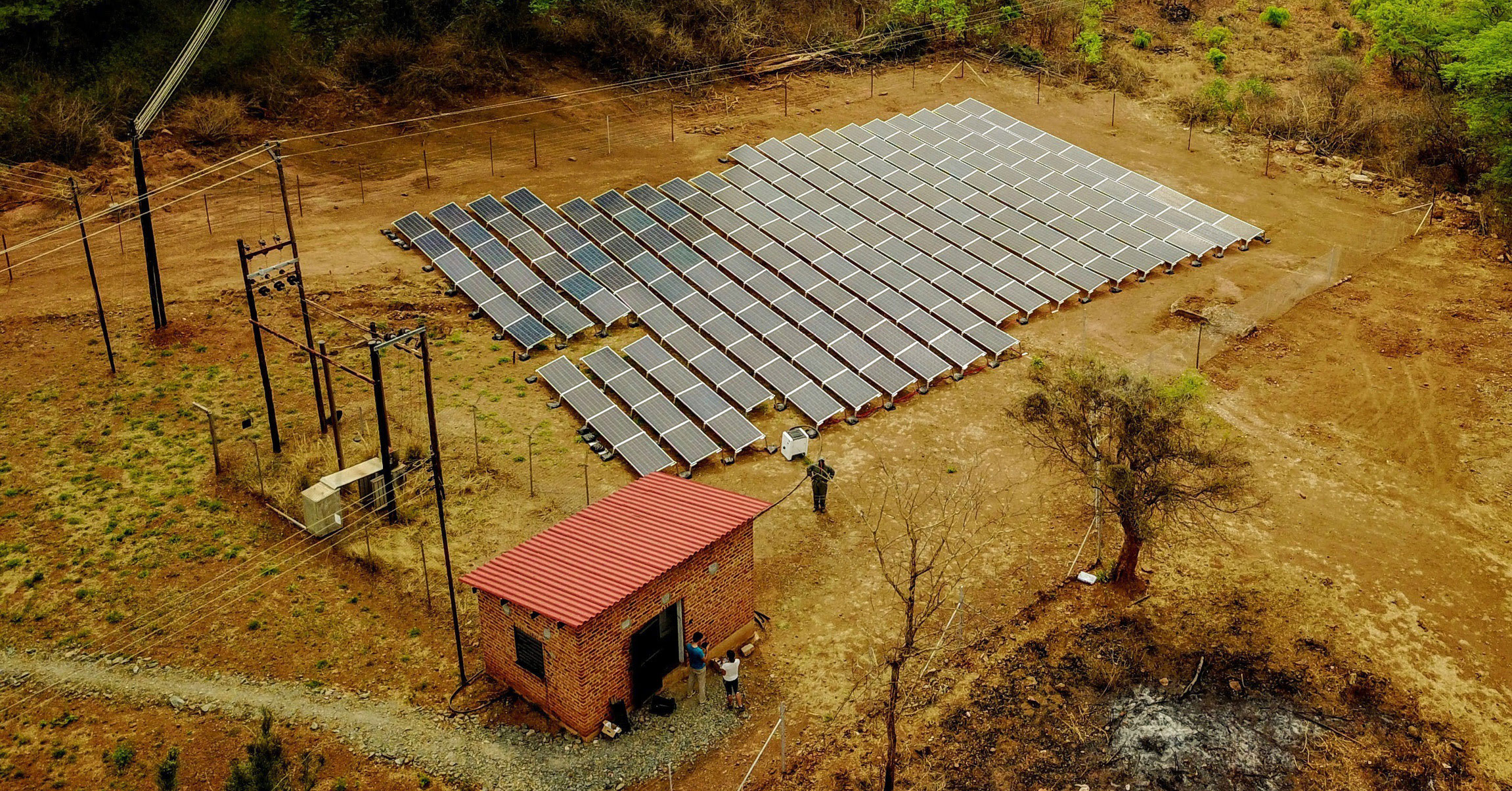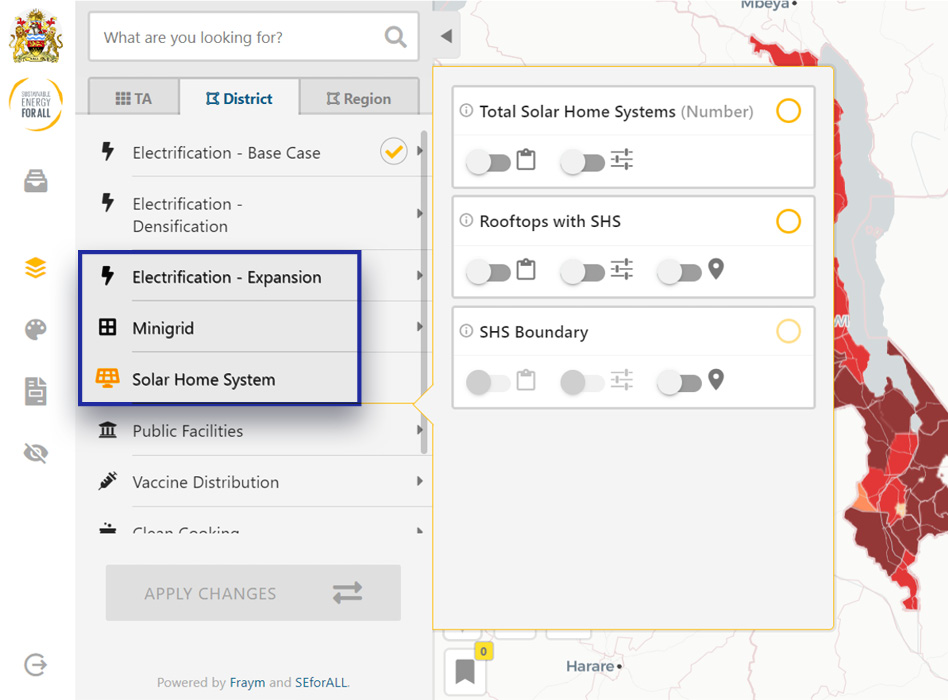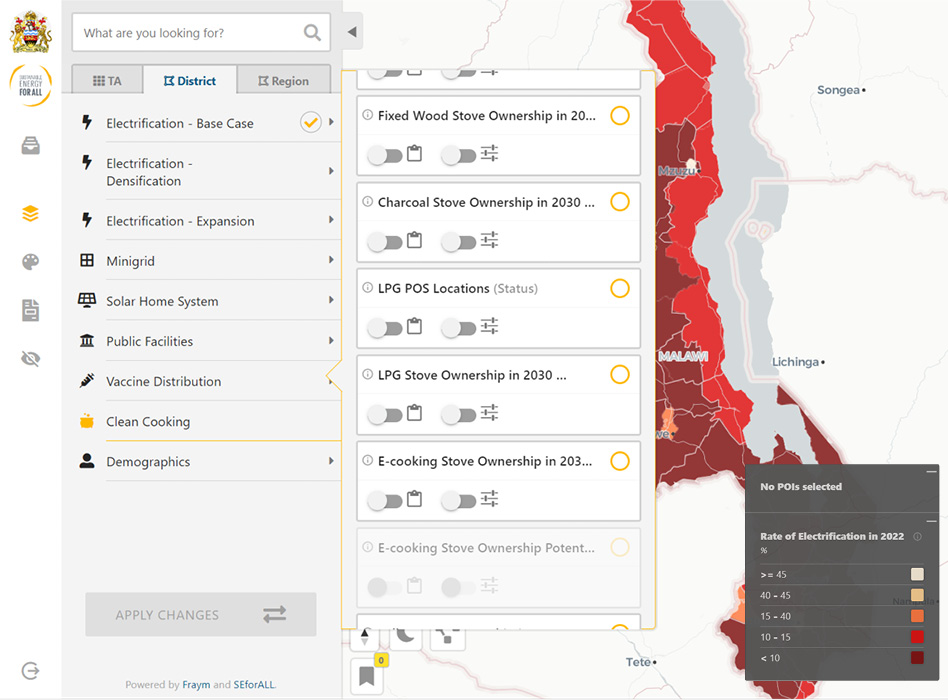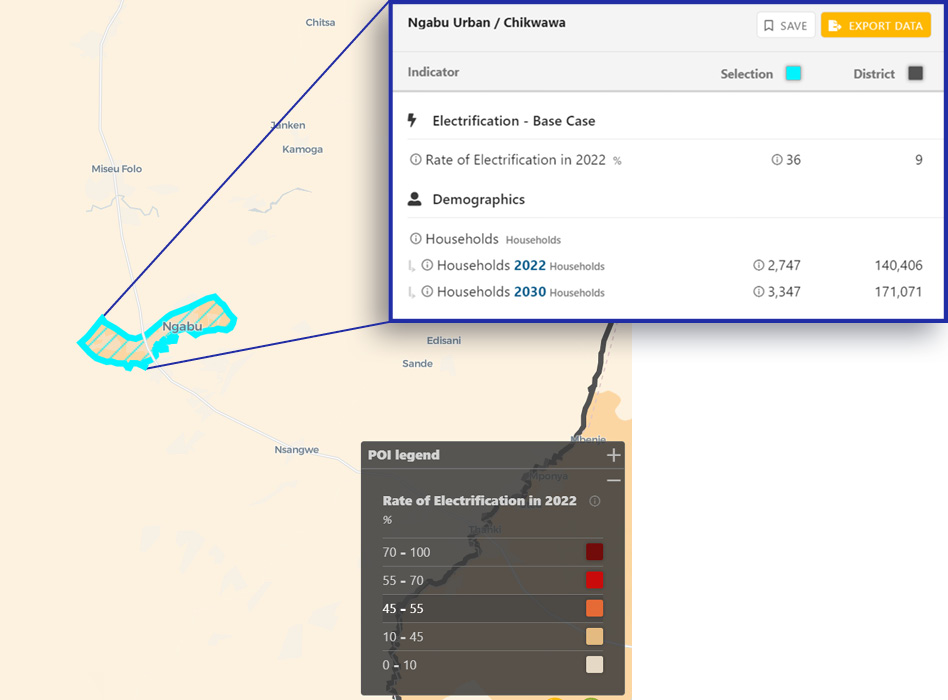Mini-grid expansion in the Democratic Republic of Congo

To support SEforALL’s country-focused integrated energy planning, an NRECA International-led consortium carried out geospatial energy access analysis. The results are now accessible via the Malawi Integrated Energy Planning Tool developed by Fraym.
In 2022, SEforALL collaborated with the Ministry of Energy, Malawi to develop an updated Malawi Integrated Energy Plan. This analysis incorporated the requirements for universal residential and institutional electrification, access to clean cooking, electrification of healthcare facilities and modeling for vaccination rollout.
Fraym worked with NRECA International to develop an IEP Tool. The tool, similar to the Nigeria IEP Tool developed by Fraym, brings together data and scenarios to identify the mix of technologies and spending required to support Malawi in its goals to increase electricity access from 18% to 100%.



Fraym’s visualization tool turns energy access data into actionable insights for stakeholders in the government and private sector to identify the right least-cost technology to be deployed across Malawi.
The Malawi IEP tool shows customers’ location based on their current and anticipated electrification status which is essential business information for interim clean-cooking solutions, such as improved cookstoves or liquefied petroleum gas.
Users of the tool can access accurate data about who has varied levels of energy access, what they need, and where they are located at any geographic level, including down to the district or traditional authority level.
M
households identified for clean cooking
M
new connections for electrification
M
new connections for SHS
The tool will be used by stakeholders in the government and private sector to identify priority geographic areas for expanding energy access and the least-cost technology to be deployed. For Malawi, the tool shows where approximately 4.8 million additional connections will be required across the country, with mini grids representing the lowest cost solution for around 350,000 of them, and solar home systems for around another 1 million.
Over the past 7 years, Fraym has contributed to energy access programs like this and has deployed data to understand energy access and opportunities for expansion, provide roadmaps for energy planning, and understand the intersection between energy and other development sectors at the neighborhood level. If this can be helpful to your organization’s efforts, then please let us know and we will work to get our analysis in your hands.